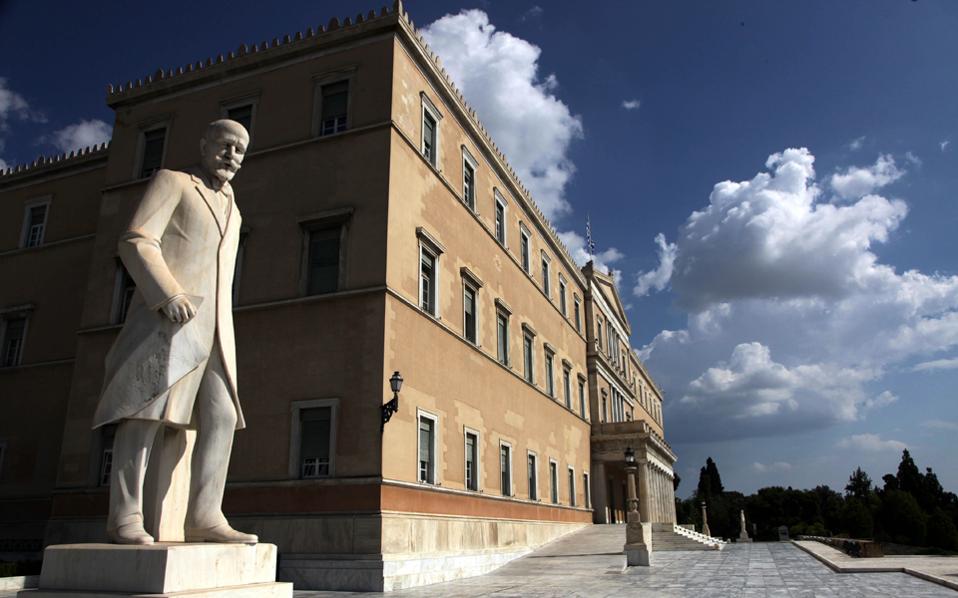The optimist’s guide to Greece

There are so many ways things could go wrong in Greece that it’s easy to miss how things could also go right. The best-case scenario involves the European Central Bank including Greek bonds in its quantitative easing programme, the lifting of capital controls and a deal on debt relief – all by the end of the year.
This is not a prediction. Trust between Greece and the other euro zone countries has been all but destroyed. Hard-line creditors, led by Germany, will only help Alexis Tsipras, the prime minister, if he implements diligently what he has agreed. That is far from given, now that his radical-left Syriza party is splintering, even though that also gives him opportunities.
However, if Tsipras can rebuild trust and follow through on his commitments, there is a clear path out of misery.
The first step is to finalise a new deal – in particular, nailing down Greece’s fiscal targets for the next few years. Given the havoc of the past month, in which banks were closed for three weeks, Athens is not going to be able to hit the targets the creditors were previously demanding without yet more debilitating austerity.
If Tsipras can persuade the euro zone creditors that he is going to implement the reforms he signs up to, they may not insist on any more measures than were previously on the table either this year or next. Otherwise, he will need to find yet more tax hikes and spending cuts.
The sooner a new deal can be agreed, ideally by the end of August, the sooner the second step can be taken: including Greek bonds in the ECB’s quantitative easing programme.
When the central bank kicked off this bond-buying operation in January, it excluded Greece on the grounds that it was not implementing its previous bailout plan. But the ECB’s vice president, Vitor Constancio, said on July 16 that, once the country was in a new programme and credibly implementing it, the central bank could start buying Athens’ debt.
This is a potential boon for the country. If the ECB hoovers up Greek bonds, their yield will plummet. This will boost confidence. In the best-case scenario, this will occur in September, soon after a new bailout deal is clinched.
The third step is recapitalisation of Greece’s banks. They need more capital because the country’s economic prospects have deteriorated sharply over the past month meaning, among other things, that more of the banks’ loans will go bad. The European Commission is now predicting GDP will shrink 2 percent to 4 percent this year.
Athens and its creditors have pencilled in an extra 10 to 25 billion euros for the banks. The ECB, which supervises the lenders, will need to conduct a detailed assessment before coming to a precise figure.
Once the supervisors have picked the magic number, they will then have to decide who will provide the capital. The key question is whether there will be a “bail-in” of uninsured depositors, mainly companies with more than 100,000 euros in their accounts – forcibly converting a proportion of their money into new bank shares.
Such a bail-in would pulverise confidence. If Tsipras is delivering his side of the bargain, the creditors won’t insist on it. Otherwise, there is a risk that the hardliners might.
Recapitalising the banks is necessary to move onto the next step: lifting capital controls. Greek lenders are now open, after a three-week bank holiday. But there are still limits – in particular, on the ability of companies to import goods. This is gumming up the economy.
If all the restrictions were removed tomorrow, depositors would rush to take their cash out. The ECB will not be willing to provide unlimited liquidity until the banks have been recapitalised, as it does not want to lend money to bust lenders. But once their balance sheets have been reinforced, it may be prepared to risk a bank run – and, if they have been recapitalised without a bail-in, depositors will be less keen to grab their money anyway.
The final step is debt relief. Germany’s Angela Merkel said on July 19 that this could involve giving Athens longer to pay back its borrowings and lower interest rates. Although the headline value of Greece’s debt wouldn’t change, better terms would make the country’s borrowings more sustainable. In time, it would be able to fund itself by issuing bonds on the market rather than relying on bailouts.
The catch is that debt relief will be considered only after the new deal’s first review which, in the best-case scenario, would be in October. What’s more, it will be conditional upon full implementation of the programme, three years later.
Just imagine that Greece got all these things – quantitative easing, lifting of capital controls and a deal on debt relief – by the end of this year. The boost to confidence would go a long way to counteracting the austerity measures.
Of course, imagining this scenario is not the same as predicting it. Greece and its creditors have disappointed too often in the past for that.
Nevertheless, Tsipras’ incentives have shifted in a helpful direction. His previous confrontational approach to the country’s creditors was partly explained by his reluctance to admit to his voters that he was making a U-turn and his fear of splitting his party. Now he has eaten his words and there’s no hope of keeping Syriza united. Given that he has crossed that Rubicon, Tsipras has a strong interest in making the new bailout plan succeed.
[Reuters Breakingviews]




